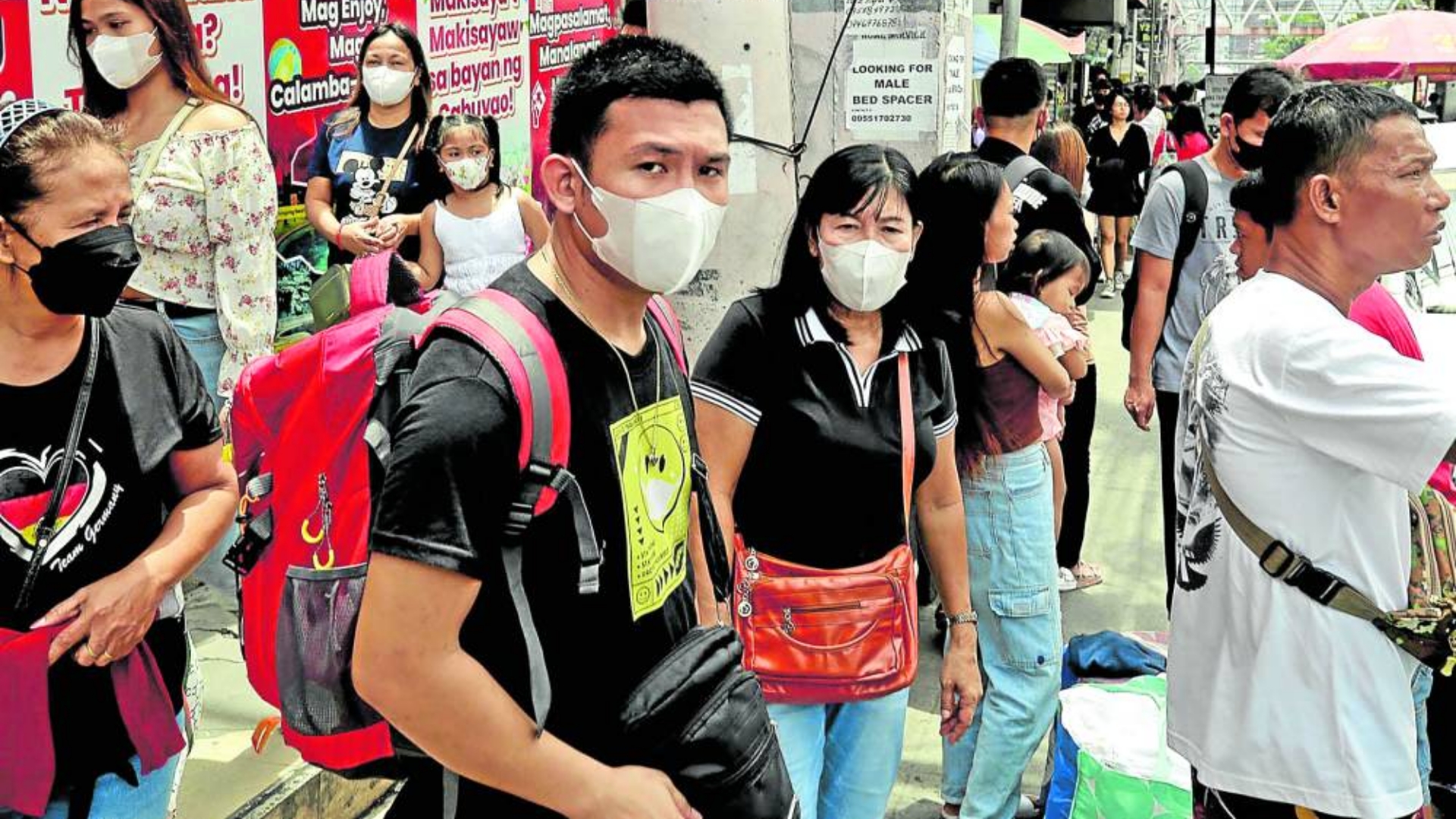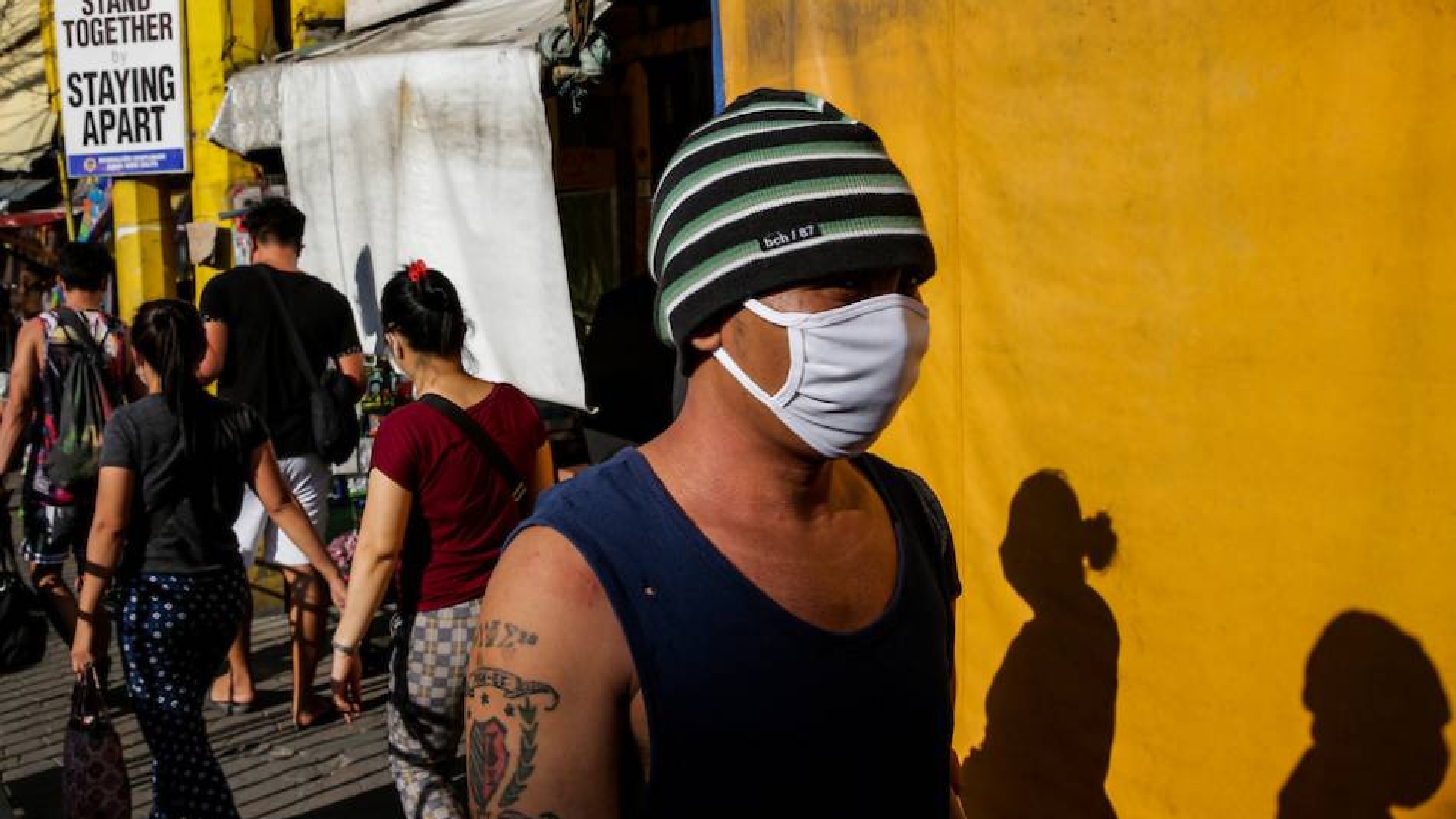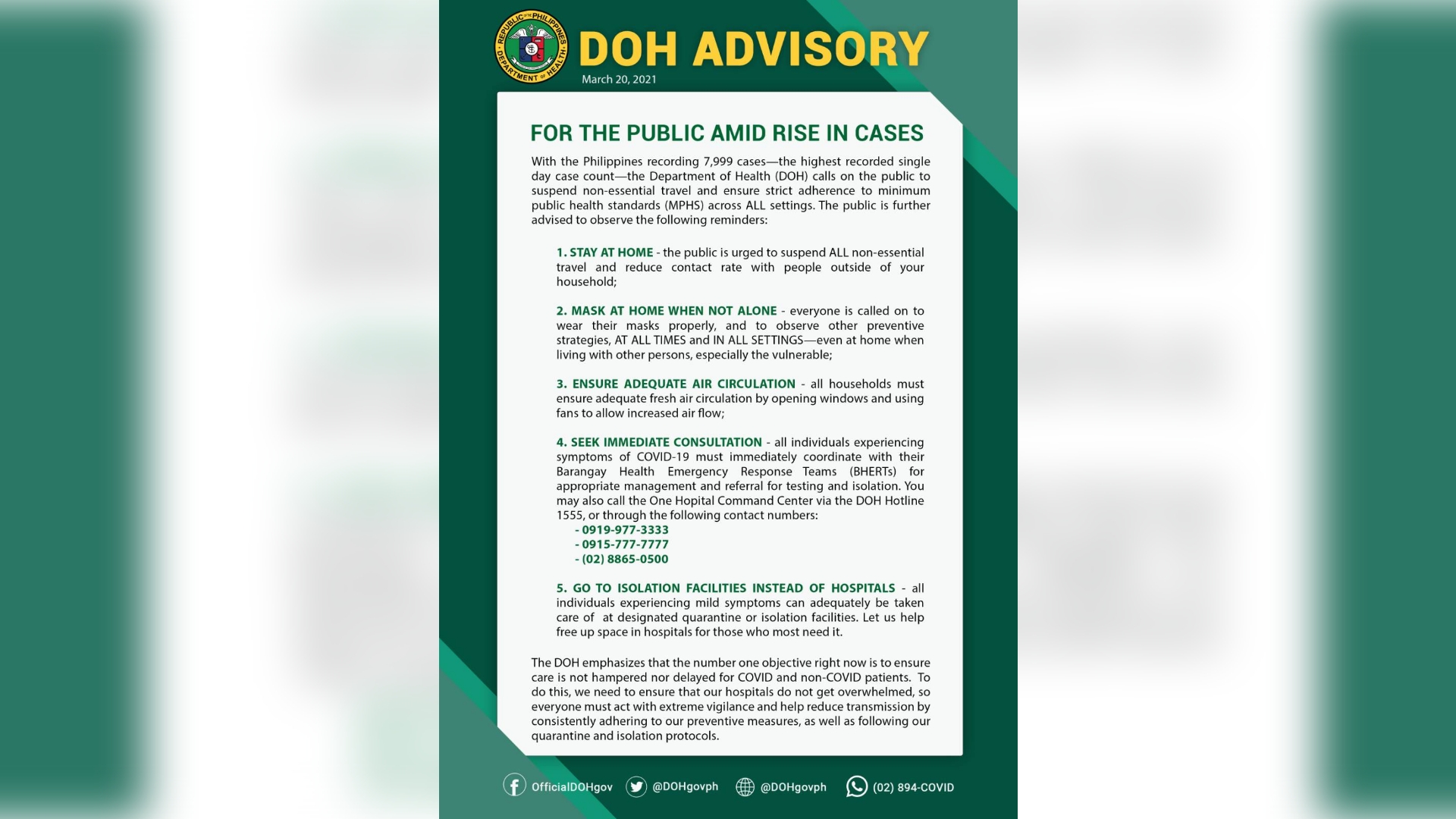Amid a modest COVID-19 rise, DOH decides against reintroducing obligatory masking.

The minor increase in COVID-19 cases, which is anticipated to continue during the holiday season, makes the Department of Health cautious to impose obligatory masking.

“There are certain hospitals that already implemented stricter masking policies, like the PGH (Philippine General Hospital), but that doesn’t mean the DOH is saying we should all wear a mask again,” Herbosa told a press conference.
The public health emergency has already been downgraded, according to Herbosa, and COVID-19 is no longer a serious health concern. The general people is not required to follow mask mandates, he continued, only private or public entities.
According to him, the COVID-19 trend is still being watched because it can still be lethal for the elderly and people with comorbidities, but as of right now, the number of new cases has only "minimally increased."
“During the season there’s a higher incidence of acute respiratory infections because there are a lot of parties, many family reunions, more people in shopping malls, more people in public places,” Herbosa said.
“But we shouldn’t be worried about COVID-19 anymore because according to our infectious diseases experts, the most recent COVID variant of interest is just like the common flu and cough,” Herbosa added.

This year, the Philippines reported 193,148 cases of influenza-like illnesses, up 33% from the year before. Business associations such as the Chamber of Commerce and Industry contended that high-risk sectors were better suited for a "granular" approach.
Sergio Ortiz-Luis Jr., president of Barcelona and ECP, recommends wearing masks with more granularity and concentrating on infected regions. They caution against implementing it widely because of possible quarantine situations. Some firms with COVID cases should wear masks, but not all of them, according to Ortiz-Luis. He anticipates the data to inform their choice.
Via Inquirer
